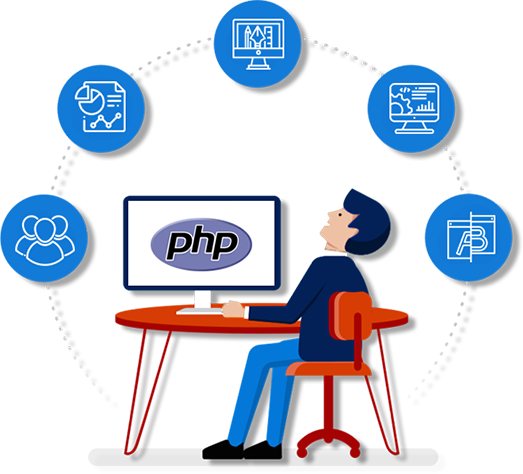News Blast
Your daily source for breaking news and insightful articles.
PHP Development: Where Code Meets Coffee
Explore PHP development like never before! Discover tips, tricks, and caffeinated inspiration to boost your coding prowess!
Mastering PHP: Tips and Tricks for Efficient Development
When it comes to mastering PHP, understanding the core principles and best practices is essential for efficient development. One of the primary tips for PHP developers is to embrace object-oriented programming (OOP). OOP not only enhances code organization and reuse but also makes the application more scalable and maintainable. Additionally, leveraging frameworks like Laravel or Symfony can dramatically speed up development. These frameworks come packed with features that promote cleaner code, improved security, and built-in solutions for common tasks such as routing and authentication.
Another critical aspect of efficient PHP development is making use of tools and libraries that can facilitate your coding process. For example, employing Composer, a dependency management tool, allows developers to easily manage and integrate libraries into their projects, ensuring you are using up-to-date versions of your dependencies. Furthermore, enhancing performance through caching techniques, such as using OPcache or implementing a caching layer with Redis, can significantly improve application speed. Remember to also utilize version control systems like Git to keep track of changes and collaborate effectively. Following these tips will not only increase your productivity but also contribute to a more robust PHP application.

Exploring the Top PHP Frameworks: Which One is Right for You?
When it comes to developing robust web applications, PHP frameworks offer developers a structured foundation that enhances productivity and maintainability. The top contenders in the PHP framework landscape include Laravel, Symfony, CodeIgniter, and Yii. Each framework has its unique strengths: Laravel is known for its elegant syntax and rich feature set, making it ideal for beginners and experienced developers alike. Symfony is favored for its scalability and flexibility, perfect for large and complex enterprise-level applications. CodeIgniter, on the other hand, is lightweight and simple to use, great for smaller projects, while Yii is recognized for its performance and speed, particularly in applications requiring high traffic handling.
Choosing the right PHP framework ultimately depends on your specific project requirements and developer expertise. Consider the following factors:
- Project Size: If you are working on a large-scale application, Symfony or Laravel might suit your needs better, while CodeIgniter could be the right choice for smaller projects.
- Learning Curve: For those new to PHP development, Laravel’s user-friendly features may make it easier to get started.
- Performance: If speed is a crucial factor, Yii is designed for high-performance applications.
Common PHP Errors and How to Fix Them: A Developer's Guide
As a PHP developer, encountering errors is a part of the journey. Some of the common PHP errors include syntax errors, runtime errors, and logical errors. Syntax errors occur when the PHP code does not conform to the language rules, often resulting in a white screen or an error message indicating what's amiss. To resolve these issues, enable error reporting in your development environment by adding the line error_reporting(E_ALL); at the start of your script. This will help you identify exactly where the error lies, making debugging much easier.
Runtime errors, on the other hand, occur while the script is executing and may lead to unintended behavior or crashes. A typical example is calling a function that doesn't exist, which can be fixed by ensuring that all functions are defined properly before being invoked. Additionally, logical errors can be tricky, as they do not produce any direct error messages but result in faulty output. These can often be pinpointed by inserting debugging statements or using tools like Xdebug to trace through your code execution step by step. Understanding these common PHP errors and their solutions is essential for any developer looking to deepen their PHP programming skills.